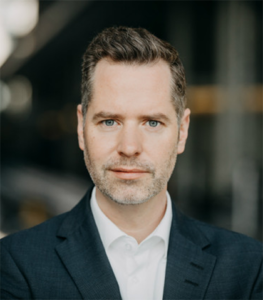Germany needs 500,000 migrants a year to avert demographic time bomb
A senior German politician says his country needs 500,000 migrant a year to avert a demographic catastrophe wrought by an ageing population.
Deputy Chairman of Germany’s pro-business Free Democrats’ (FDP) parliamentary group Christian Durr said in a recent speech that immigration was the key the Germany’s future as the second most ageing country in the world.
 “Germany will experience a huge retirement wave. Our birth rates are so low that without immigration the country will regress. At the same time, immigration fosters diversity, which in turn makes us a better country and a better society,” Mr Durr said.
“Germany will experience a huge retirement wave. Our birth rates are so low that without immigration the country will regress. At the same time, immigration fosters diversity, which in turn makes us a better country and a better society,” Mr Durr said.
He said that and ageing population had brought Germany’s pension system near to breaking point.
“Our pension system is pay as you go – the current working generation is paying directly into the pension fund that distributes money to pensioners,” Mr Durr said.
“The system worked perfectly back in the 1950s, but over the years the balance of working people to pensioners has skewed dramatically toward the latter. Soon, additional subsidies were necessary to guarantee pension payments. Today, that subsidy is more than €100 billion, roughly a third of our federal budget in 2020. This is neither sustainable nor fair to the future generations,” he said
“500,000 immigrants are roughly the amount we need to counter the demographic change. One crucial point, though: we need to make sure that people get direct access to our labour market, and we need to attract skilled labour more ambitiously.”
But he said Germany’s current immigration laws were not working.
“Our laws are too complicated. When I hear stories of people waiting for a year to have their embassy meetings, when they tell me about the mountain of paperwork they need to comb through, I get the feeling the government is actively trying to make the system as difficult as possible. We need to target skilled workers in a way that Canada does, for instance,” Mr Durr said.
Mr Durr said Germany needed to rewrite its immigration laws.
“We need to start differentiating between the different reasons for immigration – asylum, refuge, economic immigration. And it has to be transparent, so that people not only in Germany, but everywhere in the world know who gets to move here to stay, and who does not,” he said.
If we don’t change, we‘ll get older as a country, and will fall behind as a society as well as an economy. The longer we don’t address the obvious issues, the stronger the far right will get – if we fail to facilitate legal immigration, illegal immigration will rise. Right-wing parties will get stronger, and we will get weaker as a country and as a European Union,” Mr Durr said.
This month, a coalition of dozens of German municipalities demanded that Chancellor Angela Merkel’s government allow them to immediately begin resettling refugees from the Mediterranean Sea.
But, with migration becoming a touchstone issue and a clarion call for the far-right, Ms Merkel’s government has moved to speed up deportations and has bolstered the police presence on the nation’s borders to halt unauthorised migration.
The Cities of Safe Harbours initiative seeks to break that standstill by petitioning for special permissions to immediately accept refugees rescued on the Mediterranean and stranded in Greece, Italy and elsewhere.
The coalition started with 13 founding municipalities in June 2019 and now has 120.
Cities of Safe Harbours has asked the government to trigger Section 23, Paragraph 1 of Germany’s Residence Act, which allows for the immediate distribution of specialty humanitarian residence permits.












